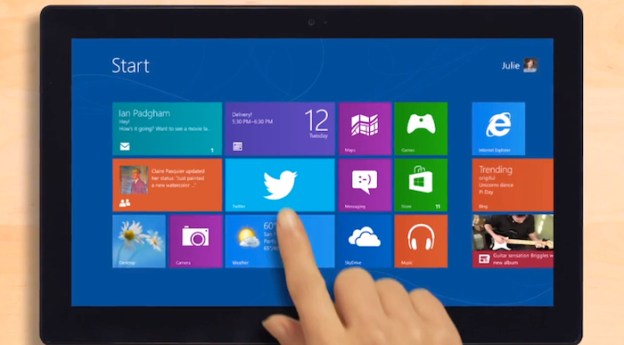 You might love Windows 8 to bits, but there are people out there who probably go into mini fits of rage if they so much as catch a glimpse of live tiles. Whether or not you’re fond of the new operating system, the truth is that Windows 8’s reception has been pretty mixed. You’ll find a lot of dissenting opinions, and it’s pretty hard to figure out whether the majority of users love it or hate it. To try to figure out what the general consensus is (or if there even is one), ZDNet consulted and compared Amazon reviews for Windows XP, 7, and 8.
You might love Windows 8 to bits, but there are people out there who probably go into mini fits of rage if they so much as catch a glimpse of live tiles. Whether or not you’re fond of the new operating system, the truth is that Windows 8’s reception has been pretty mixed. You’ll find a lot of dissenting opinions, and it’s pretty hard to figure out whether the majority of users love it or hate it. To try to figure out what the general consensus is (or if there even is one), ZDNet consulted and compared Amazon reviews for Windows XP, 7, and 8.
As you might’ve expected, with 47 percent of 1,104 reviewers giving it the max possible rating of five stars, and 20 percent giving it four stars, Windows 7 received the most positive reviews. Windows Vista was the unsurprising straggler among the three. Having been reviewed by 609 users, only 23 percent gave Vista five stars, and a whopping 42 percent gave it a measly one star. At 36 percent, Windows 8’s five-star rating is 11 percent lower than Windows 7’s. However, Windows 8 has 1,409 reviews on Amazon, whereas Windows 7 has 1,104 reviews. Take these numbers with a grain of salt.
While Windows 8 does look like it’s getting a lot of hate, those numbers indicate that it’s certainly not as bad as Vista. Many users like Windows 8 well enough, and in Microsoft’s upcoming OS update, codenamed Windows Blue, the company can remove what users disliked in Windows 8 to make its OS more appealing. Unless Windows Blue is a runaway hit from the start, though, we imagine a lot of people will still stick with their Windows 7 systems, seeing as it remains the most-loved Windows OS to date.
In addition to comparing Windows 8 with 7 and Vista, ZDNet also compared it and likened its initial reception to Windows XP. Although XP wasn’t received well when it was first released, it scored 37 percent of five-star ratings out of its 638 reviews. XP ended up being more well-liked than Windows Vista. Whether Windows 8 will also be remembered as a misunderstood operating system that most users became fond of in time remains to be seen.
Editors' Recommendations
- Ranking all 12 versions of Windows, from worst to best
- More PCs are running Windows XP than Windows 11
- This popular photo-editing app will no longer work on Windows 7 and Windows 8.1
- How Windows 7 saved Microsoft from driving over a cliff — twice
- As end of support nears, Windows 7 users are finally moving to Windows 10


